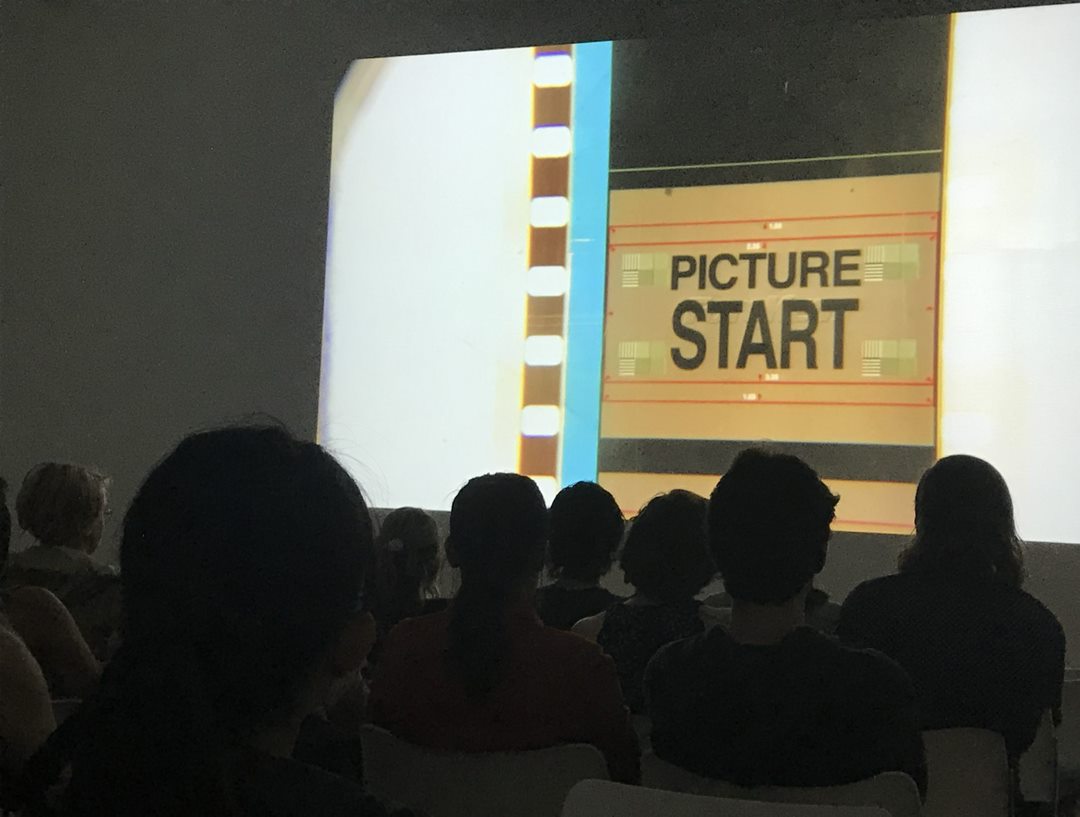For Brian Zahm, experimental film is a launching point for creativity.
“Experimental is an important area of study to help students become more visionary and progressive filmmakers,” says Zahm, an animation faculty member and filmmaker in the
School of Cinematic Arts. “Experimental knowledge and skills can help students think more creatively, no matter what field of film they’re working in.”
This month, Zahm is celebrating the genre with the DePaul Experimental Film Showcase, which offers an installation on the Loop Campus and events at DePaul Art Museum.
Sundance Film Festival-winner and DePaul alumnus Don Josephus Raphael Eblahan credits D.E.F. as an inspiration and served on the jury for this year’s sold-out event.
“This is the first year we’ve had an entire animation component as part of D.E.F., which is very exciting—and the work is created entirely by School of Cinematic Arts students,” Zahm says. In this Q&A, Zahm details what makes films experimental, and how working in the genre has launched careers.
About D.E.F. Showcase
From May 1-12, a single channel “Peace” video installation will run at the
Jarvis Student Center for Innovation and Collaboration, in the concourse level of the DePaul Center. Saturday, May 13, from 1-2:30 p.m., “Experimental Animation” will be playing on loop at
DePaul Art Museum before the sold-out screening at 3 p.m.
What makes film “experimental?”
Traditionally, most forms of media considered “experimental” are non-narrative, so there’s not a definitive point A to point B story. Most experimental films, whether live action or animation, explore various themes or energies, often combining a variety of artistic disciplines to create the final product. It’s common for experimental work to be described as “cinematic poetry,” whereas more traditional narrative film would be analogous to prose.
Why is it important to have a space to showcase student work at DePaul Art Museum?
When conceiving this event, I was overwhelmed by how much quality experimental work was coming out of the School of Cinematic Arts and felt very strongly that students and their work needed to be showcased. And truly, a film isn’t complete until it’s exhibited.
DePaul Art Museum’s screening room is the perfect boutique environment to celebrate the students and their art. The journey of walking through the beautiful museum and seeing the work of other more traditional studio artists will empowers the audience and the individual filmmaker to appreciate the showcase event, which often features very challenging and confrontational work.
 Now in its seventh year, the sold-out D.E.F. Showcase highlights experimental work by students in the School of Cinematic Arts. (Image courtesy of Brian Zahm)
Now in its seventh year, the sold-out D.E.F. Showcase highlights experimental work by students in the School of Cinematic Arts. (Image courtesy of Brian Zahm)
What can the visitors expect if they come check out the installations?
The theme of this year’s showcase is “peace” due to the various wars that are raging around the globe and here at home with all the social issues fracturing America. Echoing that, this year’s “Peace” video installation at Jarvis Student Center creates a peaceful environment for people to inhabit. It’s a 25-minute infinite-loop of collaged lava-lamp footage created by my students in Experimental Filmmaking II.
The “Experimental Animation” on-loop at DePaul Art Museum is curated by Lisa Barcy. She teaches Experimental Animation at DePaul and gathered a treasure trove of short animated films featuring exciting worlds of color and energies for people to get lost in. The showcase includes outstanding work from DePaul film and animation students. The event sells out every year.
How has making experimental film transformed your thinking as an artist and a teacher?
When I started making movies, I didn’t know I was making experimental film until a mentor pointed it out. I just thought I was making film that made sense. From that point on, I started studying experimental film and devoting a large part of my efforts to making various forms of experimental. I like to continually challenge myself to grow as an artist, so I’m always pushing to explore new areas of filmmaking.
My wide array of exploration in this field has helped me connect with the students in a deeper way because I can speak from a wealth of experience. My goal is to design my classes in such a way that every student will at least connect to one thing that will get their blood flowing and get them excited to make work. Igniting that passion is the key, and my background and endless curiosity has helped serve that purpose.